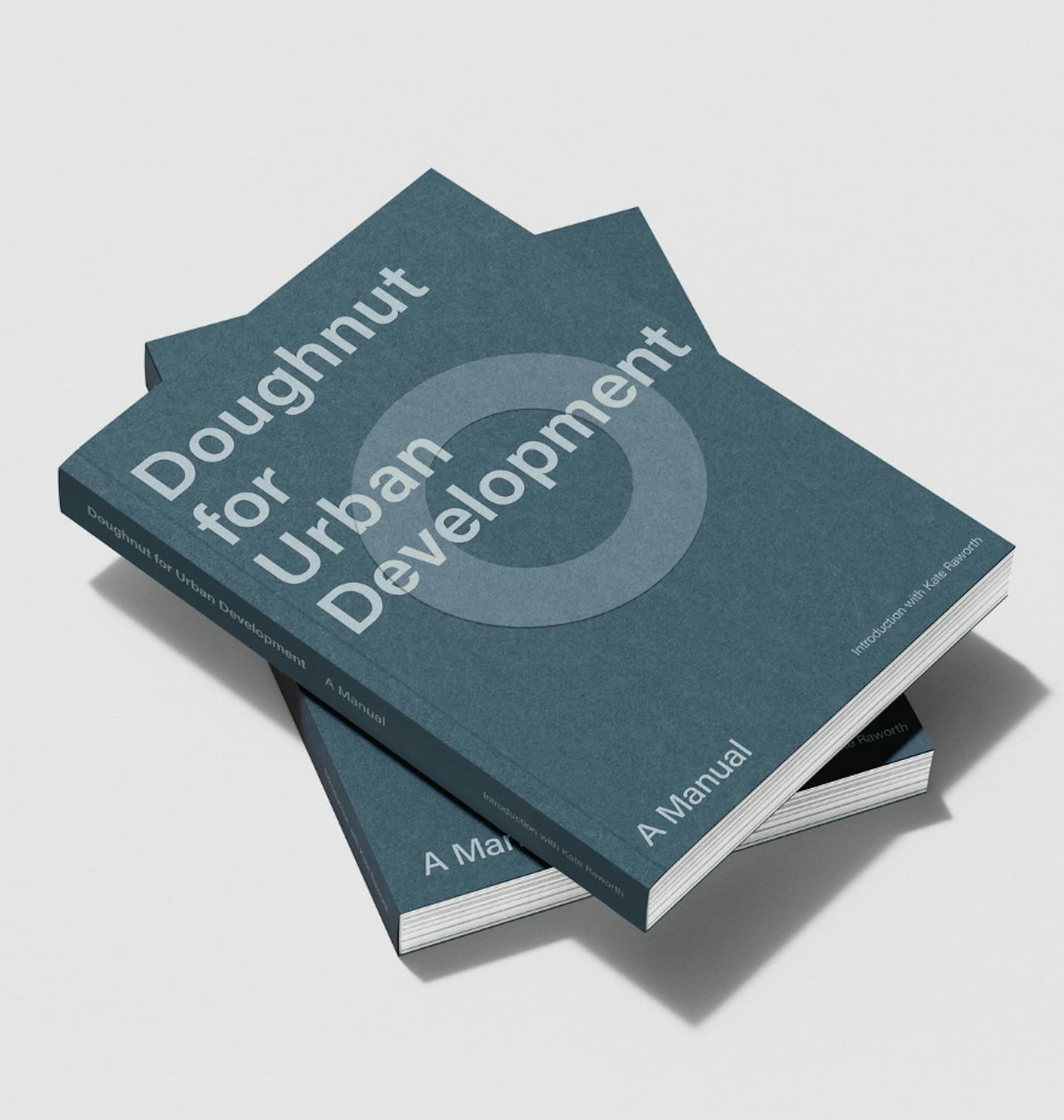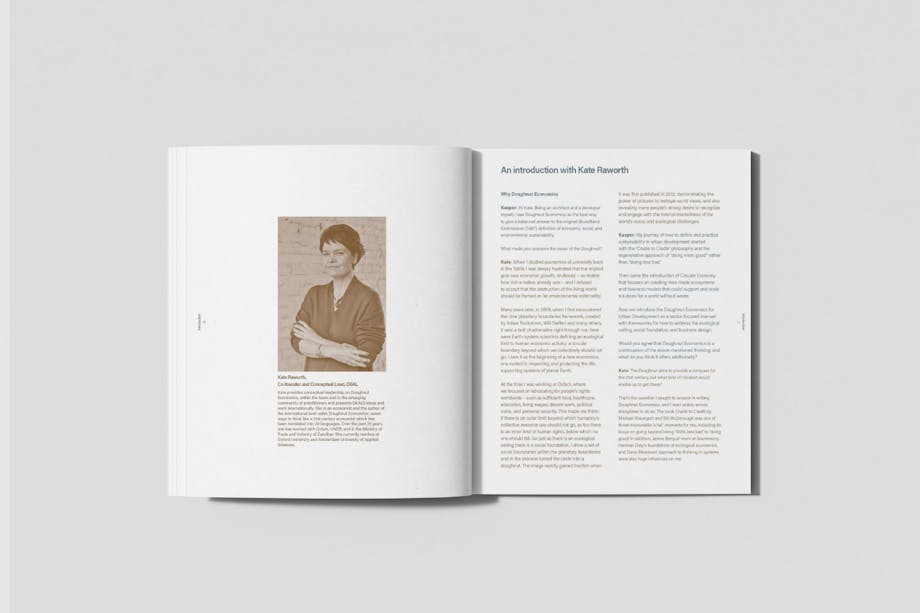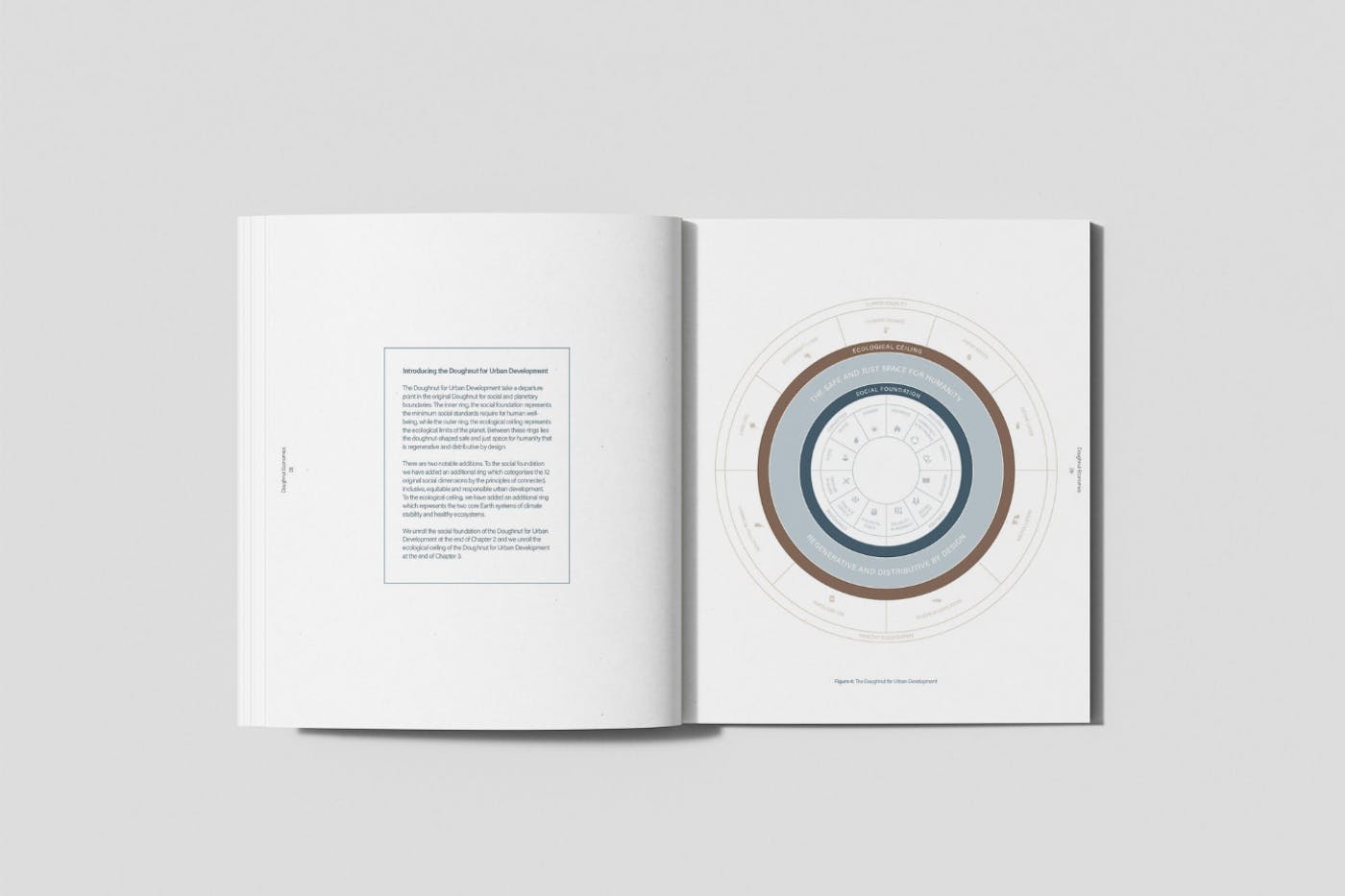Doughnut for Urban Development
A sustainable way forward for the building industry - all within the planetary boundaries.

Year
2023 — 2023
Role
Contributing Author
Partners & Collaborators
Home.Earth, Aalborg University - BUILD, Danish Technical University, Doughnut Economic Action Lab (DEAL), Green Building Council - Denmark, EFFEKT, Sweco, Stockholm Resilience Centre, Vandkunsten
Awards
Sustainability Achievement of the Year at the annual Scandinavian Design Awards.
Challenges
Doughnut for Urban Development: A Manual is a groundbreaking framework for scaling urban development within social and planetary boundaries. The manual aims to empower developers and building industry professionals with the knowledge and tools to steer the building industry towards a safe and just space for humanity within the means of the planet’s limited natural resources.
Inspired by the visionary work of renowned economist Kate Raworth in her influential book Doughnut Economics: 7 ways to think like a 21st-century economist, the Doughnut for Urban Development translates the principles of the original Doughnut to a sectoral level framework. It consists of an inner ring representing the social foundation, defining the minimum social standards for human well-being, and an outer ring – known as the ecological ceiling – outlining the planet’s ecological limits. Within this doughnut-shaped safe and just space lies the opportunity to create regenerative and distributive communities.


Kasper Guldager, Co-founder of Home.Earth and Dani Hill-Hansen from EFFEKT are co-editors of the publication, which has been developed through a collaborative effort between Aalborg University – BUILD, Danish Technical University, Doughnut Economic Action Lab (DEAL), Green Building Council – Denmark, EFFEKT, Home.Earth, SLA, Sweco, Stockholm Resilience Centre and Vandkunsten.
The manual presents a holistic and actionable approach to redefining the purpose of urban development through the ‘social foundation’ and ‘ecological ceiling’ of the Doughnut for Urban Development. As such, Doughnut for Urban Development encompasses 48 local (on-site) and 48 global (off-site) impact areas, providing a comprehensive framework for assessing and guiding sustainable urban development projects.


To scale building impact within Earth’s finite limits, Doughnut for Urban Development presents targets related to two core Earth systems to which all planetary boundaries relate– climate stability and healthy ecosystems – both measurable and specific through Earth science and life cycle assessment. To restore Earth systems, we must set and comply with carbon budgets while at the same time working towards the pursuit of regenerating nature and increasing biodiversity – so that urban development actively contributes to restoring climate stability and creating healthy ecosystems.
To support developers in pursuing this goal, Doughnut for Urban Development includes an ‘Appendix’ that supports the scientific basis of the manual, a ‘Database’ containing detailed frameworks and references behind the social and ecological impact areas, and a ‘Toolkit’ to facilitate the application of the Doughnut principles in real-world urban development projects.
Doughnut for Urban Development: A Manual is published by the Danish Architectural Press with support from Realdania and is available for free digital access here.













